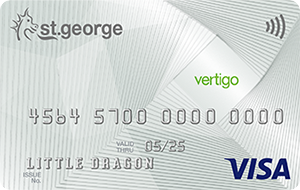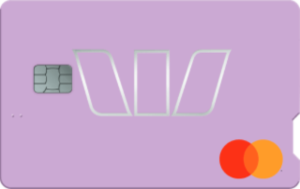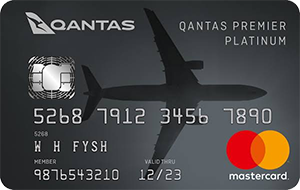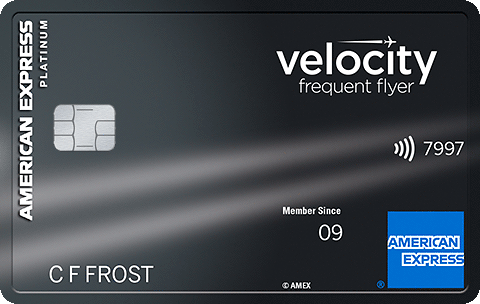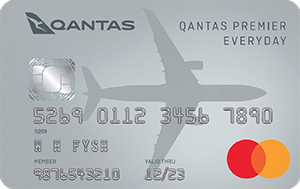
Hi, I’m a personal finance expert who loves to help you out! I’ll answer your question within a business day. Pinky swear.

Cards are a fast way to pay at the checkout, a secure option when travelling and easy to set up as a payment option for online shopping. There’s plenty of good reasons to pay with plastic, but when is it a worse option than cash? We’ll show you 10 things you should never buy with a credit card.
1. Starting a business
There’s some lofty examples of success from businesses that started using credit cards, including Google, which saw co-founders Larry Page and Sergey Brin put $15,000 on credit cards to build Google from a project into a business in mid-1998.
The popular travel accommodation site Airbnb also started out with a massive credit card debt of around $30,000 because investors thought the idea was crazy.
While these two examples are enough for many entrepreneurs to go ahead and put startup costs on credit cards, the cold, hard reality is that most small business ventures rarely get off the ground. That makes using a credit card a huge risk, especially if it is in your name and could lead to massive personal debt.
The reality is that starting a small business often means a lot of outlay before any profits are made. In fact, it could be a year or more before you see any financial rewards for all the hard work you put in, which can make using a credit card a huge risk.
“Although credit cards offer a reasonable alternative to owners that can’t secure other funding, the high interest rates and regular repayments make them a risky resource to turn to,” Dun & Bradstreet’s Small Business website says.
It suggests you research credit cards and shop around before making any decisions. And if you find your debts getting out of hand, stop using your credit card and focus on repayments and consolidation to keep things sustainable.
2. Home renovations
A lick of paint here, some new lights there, maybe a refitted bathroom or kitchen…it’s all doable with a credit card but that doesn’t mean you should use one for home improvements.
Property experts often say that the biggest mistake people make with renovations is underestimating the cost. That could mean an even bigger credit card debt, and soaring interest charges as a result.
A more affordable credit option is to take out a specialised renovation loan, personal loan or even add the cost onto your home loan depending on the amount of money you plan to spend on renovations. While credit card interest rates are around 17% p.a., these options have much lower rates that make it easier to deal with the debt in the long run.
But whatever you decide to do, start with a detailed budget so that you know exactly what you are in for before you start stripping wallpaper or smashing walls. Better yet, get quotes from all the tradies so you’ll know if you have the budget needed.
3. Buying a used car
The cost of used cars is significantly less than that of a new car, so there are a number of different finance options you can consider. While there are variable car loans that cover used cars, these usually don’t have the low rates or competitive features of new car loans, so many people choose to avoid them.
Credit cards, however, still have typically higher interest rates that could make the cost of the car significantly more than you realise. For example, if you bought a car for $3000 and used a credit card with an interest rate of 17%, it would take 11 months and cost $172.06 in interest if you paid $200 per month off the balance.
If you paid the minimum each month in this scenario, on the other hand, it would take 17 years and four months to clear the debt and cost you $2266.77 in interest. So while you can use a credit card to buy a used car, a lower interest loan or savings is probably a more cost-effective approach.
4. Gambling
Even if it is a small bet, using a credit card for gambling is not a good idea. As well as the risk of losing and having the debt added to your credit card, these transactions are typically considered “cash advances”, which means you’ll get charged a higher interest rate, an additional “cash advance” fee and could have interest charged at a different rate to regular purchases.
Another danger with credit cards and gambling is that it can be more tempting to bet more. If you have experienced any difficulties with gambling, you can visit the Problem Gambling website for resources and support.
5. Hotel extras
If leaving your credit card details at the desk seems like an invitation to take advantage of room service and minibars, it’s one you’re probably better off turning down.
While charging everything to your card is an easier option than paying as you go, it also makes it hard to keep track of exactly how much you have spent on things like bottled water, snacks and other little luxuries you probably wouldn’t choose to buy otherwise. There’s some stories of hotel snacks costing as much as $12, internet services costing $20 a day and even surcharges for using a credit card, so make sure you check out reviews and hotel policies before pulling out your card.
6. Paying off other debts
Paying debts with your credit card is similar to robbing Peter to pay Paul – often it just doesn’t add up. While paying bills with your credit card offers a short-term solution to outstanding accounts and overdue payments, it means you are adding even more to your credit card balance in the long run.
Most companies and organisations that accept credit card payments also apply a surcharge for this service, including electricity and phone companies, healthcare providers and even the Australian Taxation Office, so you’re basically paying more to put more debt on your credit card.
Worse still, this type of financial behaviour could be a warning sign that you are heading for serious debt issues. If you can’t afford to pay a bill and credit seems like the only option, it might be time to talk to your service providers and credit card company about your financial situation so that you can make sure things don’t become an even bigger struggle down the track.
7. Major medical bills
Credit cards are a saviour when unexpected medical expenses come along, and in some cases you may even need a credit card as security for medical procedures. There are still a lot of risks when it comes to paying medical bills with your credit card though, starting with rebates and repayments.
If some of your expenses are eligible for Medicare rebates, for example, the chances are that money will go back into the account Medicare has on file for you. That’s usually a bank account, which means you could end up with extra money on your everyday debit card and extra debt on your credit card.
Meanwhile, if you don’t keep track of the total actually charged when you use a credit card, your balance could end up bigger than you realise – or end up going over your limit. If you do decide to use a credit card for medical bills, try to also have a payment plan in mind and make sure you transfer any rebates to keep interest charges to a minimum.
8. Recurring payments
From internet and phone bills to subscription services like Netflix, there is a wide range of companies now encouraging you to hand over card details for recurring payments. Before handing over your credit card, however, it’s important to consider how these charges could affect your balance.
If you are someone who pays off your account in full every month, then it could be fine to use your credit card for recurring payments. But if you tend to carry a balance – no matter how large or small it is – these ongoing charges could put you on the back foot and lead to even more credit card debt.
Another option for managing these payments is to use a debit card, PayPal or direct debit option (where available), but you could also set up a direct transfer to your credit card to make sure you are repaying the exact amount that’s coming off your balance every month so it doesn’t lead to any more debt.
9. Shopping sprees
It sounds like the perfect scenario for using a credit card, but it is actually one of the worst things you could choose to do with plastic. Unlike cash or debit cards, credit cards give us access to money we haven’t saved up or earned, which can make it even easier to spend on unnecessary items.
Research has also shown that paying with a credit card is psychologically less “painful” than paying with cash, and that there are many times when we will increase our spending as much as 60% when using plastic. Some academics have even concluded that people should always “leave home without it” if they want to save money.
So if you already have a credit card debt or have specific saving goals in mind, it might be better to stick with a debit card, prepaid card or cash so you can keep your shopping spree fun and avoid buyer’s regret in the form of debt later on.
10. Withdrawing cash
Although cards come with the option of a cash advance, it is actually one of the worst credit card features you could ever use.
For starters, cash advances have a higher interest rate than standard purchases, usually between 19.99% p.a. and 21.99% p.a., with no interest free period available. As NAB explains in an article about different types of credit:
“The interest starts being calculated from the day you make a cash advance. If you don’t plan to pay it back quickly, you could pay quite a lot in interest.”
Beyond that there is the cash advance fee to think about: a charge typically worth between 1% and 3% of the total transaction. So if you withdraw $1000, you would pay an extra $10 to $30 and start accruing interest straight away.
While there are definitely times when cash is still needed, it’s much more affordable to use a debit card, or even opt for a bank transfer or payment via a mobile app like PayPal here (which gets processed as a regular transaction). NAB also says that most BPAY transactions from a credit account will be treated as purchases, so there are lots of ways to get around cash advance fees no matter where you are and what kind of payment you need to make.
These days, credit cards are accepted pretty much everywhere and for everything. What these 10 things show, however, is that not all transactions are created equally and there are still some scenarios where using credit costs a lot more than other payment options.
But being aware of the risks of using your credit card for specific things like financing a small business or buying a used car also means you can make more informed decisions. And that means you have a better chance of keeping out of serious debt and making credit work for you.

Pauline Hatch
Pauline is a personal finance expert at CreditCard.com.au, with 9 years in money, budgeting and property reporting under her belt. Pauline is passionate about seeing Aussies win by making their money – and their credit cards – work smarter, harder and bigger.
You might be interested in

Credit Card Types
Credit Card Fraud Statistics

Tips & Guides
Complete Guide to the Velocity Frequent Flyer Program
Recently Asked Questions
Something you need to know about this card? Ask our credit card expert a question.
Ask a question
Hi, I’m a personal finance expert who loves to help you out! I’ll answer your question within a business day. Pinky swear.


